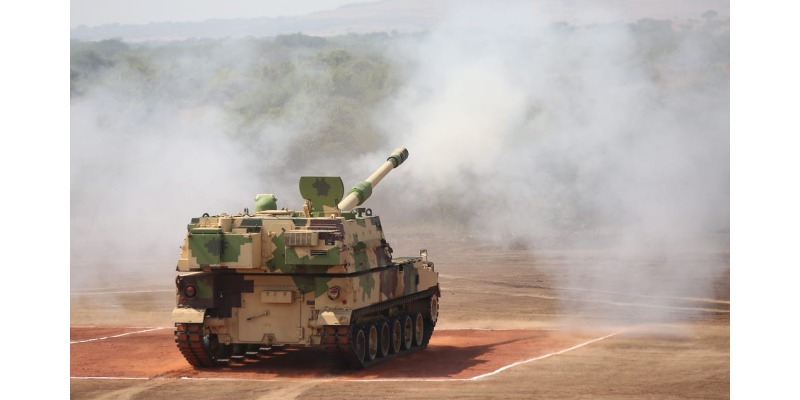
SOURCE: Telangana Today
India’s decision to impose a ban on the import of 101 defence items may be seen as a boost for indigenous production under the much-touted ‘Make in India’ drive but the sudden move poses a big challenge to the poorly organised domestic defence research and manufacturing sectors. The import embargo, to be implemented in phases between 2020 and 2024, is expected to result in a bonanza of contracts worth Rs 4 lakh crore for the domestic industry in the coming years.
However, a reality check on the ground shows that India has not nurtured a suitable ecosystem for this. The country needs to learn to walk before it can run. The goal of making the country self-reliant in defence production has been on the priority list, especially after the 1999 Kargil war.
The ‘Make in India’ scheme to develop the indigenous defence industry has failed to achieve its targets so far. Excruciatingly slow defence projects like Light Combat Aircraft (LCA) should have taught us a lesson that leap-frogging from assembling fighters to designing and making one is simply impractical. What the country needs first is a blueprint of a realistic and result-oriented industrial policy involving creation of industrial clusters in certain identified areas. There is a need for the government to fund re-innovation of foreign technology by setting up research institutions around key areas. ‘Atma Nirbharta’ is the new buzzword. For any country, nothing symbolises self-reliance better than the progress it makes in the defence research and related activities because the security of the nation is at stake here.
However, when one looks at the track record of the research and development projects of the Defence Research and Development Organisation (DRDO) and the private sector role in meeting the defence requirements, it evokes anything but a sense of ‘atma nirbharta’. Missing deadlines has been the bane of the DRDO with many projects being in a state of limbo for decades while others become redundant by the time they become available to the armed forces or other agencies. The highly bureaucratised DRDO works in silos with no sense of prioritisation or urgency. The long delays often push the costs so much that importing similar technologies would make better sense. Not surprisingly, the armed forces are never happy with the pace of projects undertaken by the DRDO and their delivery schedules. The private sector is now ready to enter the threshold, provided they are not deliberately kept out as they have been in several areas for some time now. Companies like L&T and Tatas have stuck it out, but many have closed shop because of the Defence Ministry’s discriminatory treatment towards them. Bureaucratic loopholes in the defence procurement policy must be removed.






